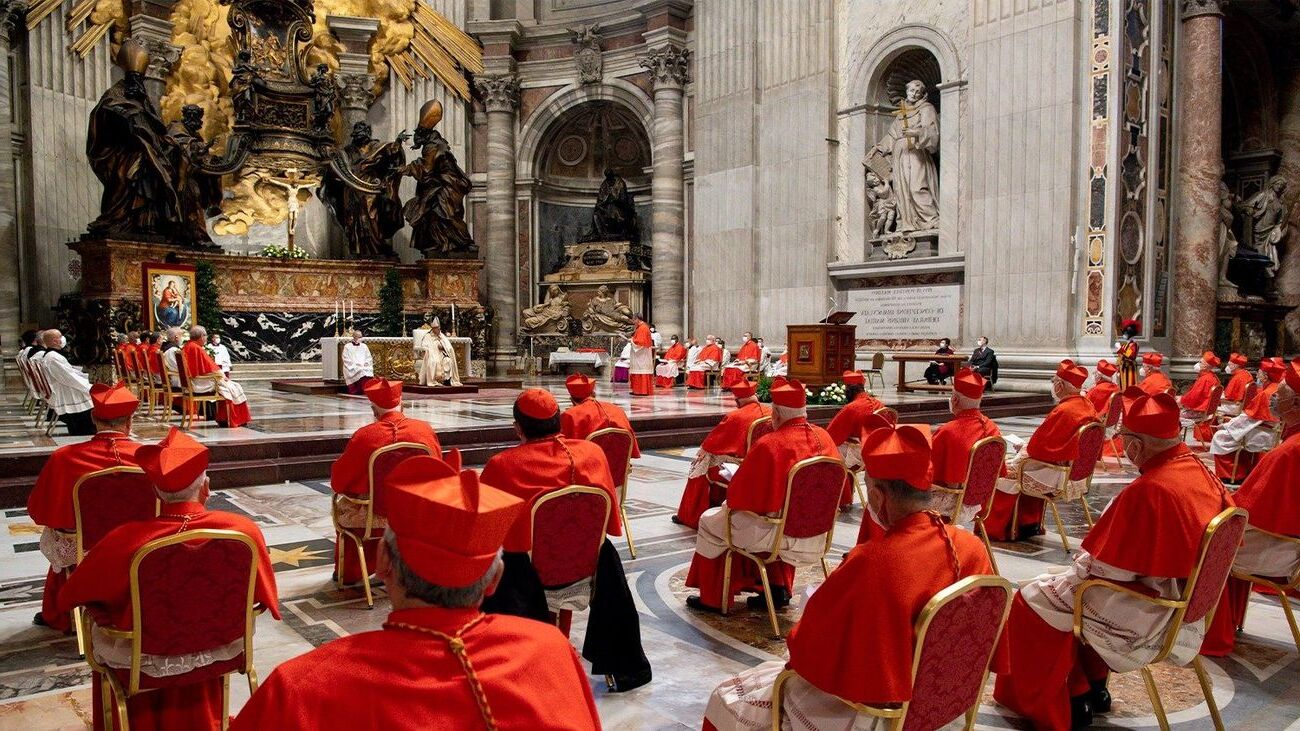
Benediction is a word that might sound old-fashioned, but it holds a lot of meaning. Ever wondered what it truly signifies? Benediction comes from Latin roots, meaning "to speak well of." It's often used in religious contexts, symbolizing a blessing or a prayer for divine help. But there's more to it than just a spiritual angle. Did you know that benedictions can be found in literature, music, and even everyday conversations? They serve as a way to wish someone well, offering hope and goodwill. Ready to dive into 20 intriguing facts about benedictions? Let's get started!
Benediction: A Blessing in Disguise
Benediction, a term often associated with blessings and prayers, holds a rich history and significance. Let's dive into some fascinating facts about this age-old practice.
-
Benediction Originates from Latin
The word "benediction" comes from the Latin "benedictio," meaning "to speak well of." It combines "bene" (well) and "dicere" (to speak). -
Common in Religious Ceremonies
Benedictions are frequently used in religious ceremonies, including Christian, Jewish, and Islamic traditions. They often mark the end of a service. -
A Symbol of Peace
Many benedictions aim to invoke peace and goodwill upon the congregation or individuals, fostering a sense of community and harmony. -
Used in Various Cultures
Different cultures have their unique forms of benedictions, each with distinct words and rituals. For instance, the Irish blessing is well-known for its poetic nature. -
Not Just for Religious Contexts
Benedictions can also be found in secular settings, such as graduations, inaugurations, and other significant life events, where they serve to offer good wishes and positive thoughts.
Historical Significance of Benediction
Understanding the historical context of benediction can provide deeper insights into its importance and evolution over time.
-
Ancient Roots
Benedictions date back to ancient times, with evidence of their use in early civilizations like Mesopotamia and Egypt, where priests would bless the people and their endeavors. -
Biblical References
The Bible contains numerous instances of benedictions, such as the Aaronic blessing in Numbers 6:24-26, which is still widely used in Jewish and Christian traditions. -
Medieval Practices
During the medieval period, benedictions became more formalized within the Christian church, often performed by clergy to bless the congregation and sanctify objects. -
Renaissance Influence
The Renaissance period saw a revival of classical texts, including ancient benedictions, which influenced the prayers and blessings of that era. -
Modern Adaptations
Today, benedictions have adapted to contemporary contexts, often incorporating inclusive language and addressing modern concerns while maintaining their traditional essence.
Benediction in Literature and Pop Culture
Benediction has also found its way into literature and popular culture, reflecting its broad influence.
-
Featured in Literature
Many literary works, from Shakespearean plays to modern novels, include benedictions as a way to convey blessings or good wishes to characters. -
In Music and Songs
Songs across various genres often include benedictory themes, invoking blessings and positive sentiments. For example, "The Blessing" by Kari Jobe and Cody Carnes has become a popular contemporary Christian song. -
Movies and TV Shows
Benedictions appear in films and TV shows, often during pivotal moments to signify hope, peace, or a new beginning. They add a layer of emotional depth to the narrative. -
Poetry
Poets have long used benedictions in their work to express goodwill and blessings, creating a sense of closure and completeness in their verses.
Benediction Practices Around the World
Different regions and cultures have their unique ways of performing benedictions, each with its own charm and significance.
-
Irish Blessings
Irish benedictions are famous for their lyrical and heartfelt nature, often invoking nature and divine protection. -
Jewish Benedictions
In Jewish tradition, benedictions (berakhot) are recited on various occasions, from daily prayers to special ceremonies, each with specific wording and intent. -
Hindu Blessings
Hindu rituals often include blessings from elders and priests, invoking the deities' favor and protection for individuals and families. -
Native American Blessings
Native American cultures have their unique benedictions, often involving nature elements and ancestral spirits to bless and protect the community. -
African Traditions
Many African cultures incorporate blessings in their rituals, using symbolic actions and words to invoke prosperity, health, and unity. -
Buddhist Practices
In Buddhism, blessings are often given by monks, who chant prayers and sprinkle holy water to bestow peace and enlightenment upon the followers.
Final Thoughts on Benediction
Benediction, a term often associated with blessings and good wishes, holds a rich history and cultural significance. From religious ceremonies to everyday expressions of goodwill, benedictions have woven themselves into the fabric of human interaction. They serve as a reminder of the power of words and the impact they can have on our lives. Whether you're seeking comfort, offering support, or simply wishing someone well, a benediction can be a powerful tool. Embrace the tradition and let it enrich your daily interactions. Remember, a kind word or a heartfelt blessing can make a world of difference. So, next time you have the chance, don't hesitate to share a benediction with those around you. It might just be the positive touch they need.
Was this page helpful?
Our commitment to delivering trustworthy and engaging content is at the heart of what we do. Each fact on our site is contributed by real users like you, bringing a wealth of diverse insights and information. To ensure the highest standards of accuracy and reliability, our dedicated editors meticulously review each submission. This process guarantees that the facts we share are not only fascinating but also credible. Trust in our commitment to quality and authenticity as you explore and learn with us.


